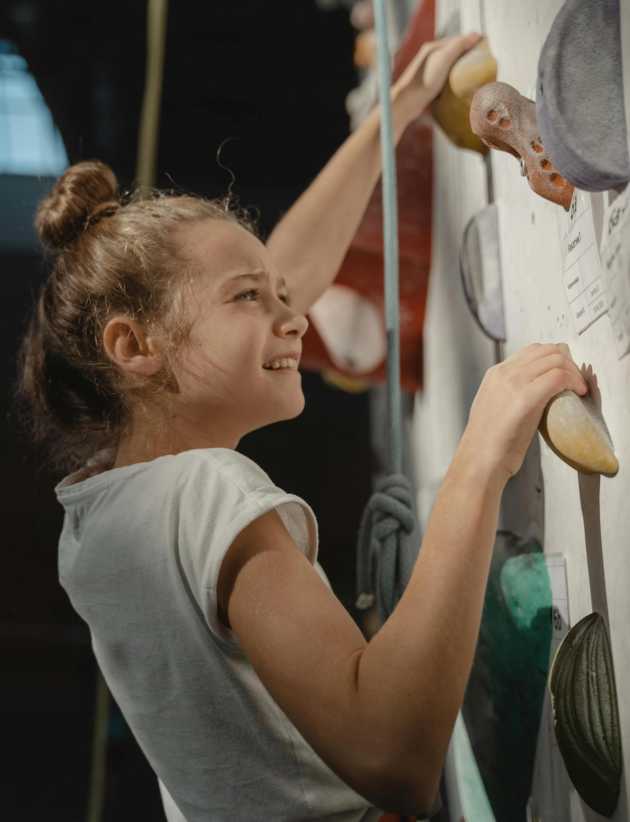[Editor’s Note: For a list of our favorite kids’ music programs in the city, click HERE.]
For parents interested in getting their child involved in a music program, the task of picking the right instrument, the right teacher, and, of course, the right program can become overwhelming. To help make these important choices easier, we’ve compiled some key factors to keep in mind, as well as some savvy insight from experts at local programs.
The First Notes

Instead of plunging your child right into a full-fledged music program before you’ve gauged their interest level, pique their curiosity by nudging them toward music slowly. According to Toby Wine, director of music at the Church Street School for Music and Art, listening to music at home is the best place to start. “When I grew up, my parents had hundreds and hundreds of records and they were fascinating to me; I would just pull things off the shelf and put it on because I was so interested in it. So I think that’s where it starts,” Wine explains. “[If music is] something that the family in general enjoys, then the child is more than likely to enjoy music and see the value in it.”
Of course, if your young child loves to sing and play with toy instruments, you can take it one step further by bringing them to see live performances, especially by children their own age.
The Right Fit
If your child has expressed an affinity for music and has even demonstrated interest in a particular instrument, the next step is to find the right school or program. To help decide on a school, you’ll need to first decide on two crucial aspects: Accessibility and affordability. Once you’ve compiled a short list of local programs within your budget, you should meet with the directors of your top picks to discuss your goals, the teachers, the environment, and types of lessons that will suite your child. Yana Stotland, director of the 92Y School of Music, believes it’s important for parents to clearly state what their expectations are so that there are no miscommunications. “If a family is looking for very basic instruction—just so the child can be able to play some showtunes—and that has not been clearly communicated to the director, they can get placed with someone who only does classical music,” Stotland says. “You really want to avoid misalignment… So the job really starts with the parents knowing what they hope to accomplish.”
Trying A Music School

If your child’s school offers an in-school band or music class, it may be tempting to forgo exploring more specialized instruction. However, enrolling in a music school has many unique benefits. “When you come to a music school, we’ve hired successful, experienced faculty who specialize in their instrument,” explains Scott Taylor, Young People’s Division Manager at the Lucy Moses School at Kaufman Music Center. “So when it comes to studying the clarinet, you are going to study with a teacher who not only played the clarinet, but who probably performs on a regular basis and has had a great deal of experience teaching that instrument to a bunch of students.”
It’s also important to note that every child develops at a different rate and has different strengths and weakness. With formal training from a music school, an instructor can focus on those strengths and weakness and help your child achieve their goals.
Picking An Instrument
Picking an instrument to specialize in should be a child’s own decision about what instrument they’re truly interested in. To help your child navigate what instrument they might like, it’s best to expose them to all types of instruments and see what they naturally gravitate towards.
Wine believes parents should wait until their child is between the ages of 5 and 8 before they settle on an instrument for their child to take lessons on. “Traditionally, the piano is the most widely recommended starting instrument… It’s infinitely challenging, but it doesn’t present the immediate physical obstacles that [some] other instruments do,” he says.

One approach to helping your child pick an instrument at a young age—according to Kirsten Morgan, the executive director of the Diller-Quaile School of Music—is to place them in group music experiences, which, she says, “are developmentally appropriate and musically engaging, with opportunities to explore instruments.” In a similar vein, Taylor suggests that an instrument discovery class, like those offered at the Lucy Moses School, can be a great tool. “[The class] explores about five different instruments over the course of a 30 week period,” he says. “It helps [kids ages 4-6] identify what they like and study it the follow year.” According to Patti Onorato, the early childhood coordinator at the Turtle Bay Music School, finding the right instrument should come from some combination of “what the parent is ready to take on, what the child might want, and what the teacher sees.”
Keep In Mind
Ultimately, when it comes to determining the best fit for a music program for your child, you can rarely go wrong in trusting your parental intuition and feeling confident that you know your child. “Go with your instincts,” Morgan advises. “The initial feeling you have when you walk into an institution is normally the correct one. You should feel positive, encouraged, and excited about your child’s musical education and training.”
[Editor’s Note: For a list of our favorite kids’ music programs in the city, click HERE.]



















